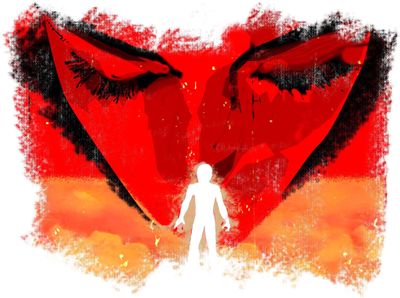Experts offer advice on keeping kids safe this summer

It’s summertime, at last. Inland Northwest pools, water parks and playgrounds are open.
Pools and parks are busier than ever this year, thanks to economy-induced “staycations” and the opening of new pools in Spokane. Rebuilt pools at Shadle Park and A.M. Cannon Park open today.
But the sunshine of summer can get clouded over by the presence in playgrounds, parks and pools of people who shouldn’t be there – sex offenders.
Experts from Inland Northwest law enforcement agencies, parks and recreation departments and the Washington state attorney general’s office contributed information for today’s Q-and-A on child safety in parks, pools and playgrounds.
Q: What’s the best way to keep children safe from predators in parks and pools?
A: Never drop them off alone. Despite increased awareness that sexual predators tend to hang out where children congregate, and increased awareness that neglected children can be taken away from their parents, some parents still consider parks and playgrounds their summer babysitters.
Yet children who are obviously alone at pools, or left there with young siblings and friends, make easier targets for predators.
“Parents need to stay,” said Doug Chase, director of Spokane County Parks and Recreation. “They help in watching kids of all ages.”
Q: What are some suspicious behaviors to look for?
A: By now, most parents know that sex offenders don’t always look stereotypically creepy. They often blend in, dressed like typical dads or moms.
Bryant Robinson, park ranger for Spokane County, said parents should trust “that sixth sense we all have” when an adult’s behavior sparks concern.
“Look for someone who doesn’t seem to have any reason to be at the park or pool,” he said. “Someone trying not to be seen.
“And if you have a stranger coming up to your child initiating conversation, there better be a good reason for it.”
Q: What should parents do if they get a weird feeling about a person’s behavior?
A: If a child seems in imminent danger, call 911. Short of an emergency, notify park, pool and playground managers, who generally have child-abuse prevention training.
Also, parents in Spokane County can call Crime Check – (509) 456-2233 – which should prompt a police response.
Q: Are convicted sex offenders even allowed in parks and playgrounds?
A: It depends. For some, probation requirements prohibit them from hanging out where children gather. But for others, no restrictions apply, because they are off probation or never had restrictions in the first place.
Only 20 percent of Spokane’s convicted sex offenders are under current supervision, according to the police department’s sexual assault unit.
However, a 2006 Washington state law prohibiting “criminal trespass against a child” gives employees of facilities where children congregate power to order high-risk sex offenders to leave, regardless of an offender’s probation status.
The law covers both public and private places used for the education, care or recreation of children. It’s a bit cumbersome, though, and has not been used much, according to law enforcement experts.
Employees first have to determine whether the suspicious person is a convicted Level II or Level III sex offender. And then they must provide written notice that the person must leave.
Offenders who remain or return are guilty of a Class C felony and can receive up to a year in jail and a $10,000 fine.
Q: How can I find out if someone is a registered sex offender?
A: In Washington state, you can go to the sex offender information center at www.icrimewatch.net/ washington.php. Type in your address and you’ll find photos and descriptions of sex offenders living within a two-mile radius. Also available there: The complete list of sex offenders registered in Spokane County.
In Idaho, the State Police Web site offers extensive sex offender location information at www.isp.state.id.us/sor_id/
Q: Anything else parents should keep in mind this summer?
A: Sgt. Jim Faddis, head of Spokane Police Department’s sexual assault unit, said, “The people you should be aware of, too, are people in your own home.”
According to the National Center for Victims of Crime, 43 percent of children who are sexually abused are abused by family members, 33 percent are abused by someone they know and the remaining 24 percent are sexually abused by strangers.
So parents should be just as vigilant at backyard pool parties, family reunions and neighborhood gatherings as they are in public parks, playgrounds and pools.